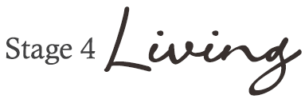
This breast cancer story is not a short story
I believe my cancer story truly began in 1989, the year my sister Carol died from breast cancer at the age of 39. That should have been a BIG wake-up call for me.
But at the time, instead of realizing the possibility that I, too, could get breast cancer and developing my own personal plan to reduce that risk, I chose the much more comforting responses: Denial and Magical Thinking.
Denial because I remember thinking that cancer wouldn’t strike twice in the same family. I felt I had dodged the bullet that Carol took for me and my two surviving sisters. Magical Thinking because I was young and lived a healthy lifestyle. I felt invincible.
I don’t want my story to scare you, but I do hope it serves as a cautionary tale. Cancer can strike anyone at any time. All we can do is put up a strong, first-line of defense to safeguard our health and protect our bodies.
Breast cancer round 1: mastectomy and chemo
In the spring of 2000 and at the same age (39) that my sister was when she died, I was diagnosed with breast cancer. Another bullet to my family, especially my mother. I had a modified radical mastectomy, when some limited lymph node involvement was found, followed by chemotherapy. I received mixed opinions on radiation, so I opted against it. Because my cancer was hormone-receptor-positive, I was put on Tamoxifen. With surgery, chemo, and adjuvant drug therapy, radiation seemed like overkill. Tamoxifen was prescribed for five years, and then I was moved to Arimidex, though I stopped that treatment, mainly because of its side-effects. Yet honestly, magical thinking again influenced my decision. I wanted to be done with breast cancer.


Breast cancer round 2: radiation
Seven years later, in the summer of 2007, I learned that breast cancer was not done with me when I found a small lump in my mastectomy incision. Doctors concluded that some microscopic cells had remained after the mastectomy and chemo that were kept in check by the Tamoxifen. The radiation option I declined in 2000 was now a must-do, so I did, signing up for radiation duty, every day, M-F, for 6 weeks. Since 2007, radiotherapy has become more sophisticated and targeted and often requires fewer sessions and less time.
Radiation side story
In 2009, I experienced another setback. The radiation caused encapsulation (surrounding scar tissue) of my implant. I consulted a reputable plastic surgeon who said surgery on radiated tissue could be a challenge. She said she wouldn’t even consider it until at least a year had passed; I waited longer. She replaced the implant and felt the procedure went well and that my skin was fine, which it was, for several weeks, until the morning I awoke with a red stain on my white t-shirt. The incision wound had split open, otherwise known as dehiscence. I felt no pain. My insides weren’t poking out. My boyfriend drove me to the nearest ER as I held the incision together. I expected to be pumped full of antibiotics and stitched back together again.
Antibiotics, yes; stitching, no. The incision would need to heal on its own. I was devastated. Disfigured and devastated, but the healing process had begun. Then, walking to my car with snow and ice on the ground in a high alpine environment, I slipped. I was able to catch myself, but the action caused another little split. I was to face a fresh new hell—healing aided by a wound vac, a device that decreases air pressure on a wound to help it heal more quickly.
When I finally was able to have reconstructive surgery—emphasis on construction—it required fresh new tissue, donated by my own latissimus dorsi muscle and tunneled from my back to my front. I felt whole once again and life returned to a new, new normal.


Breast cancer round 3: clinical trials
After all I went through with the wound dehiscence, life was good during the first half of the 2010s, until 2016. I developed a persistent cough, leading to the discovery of fluid in my right lung, which was drained and biopsied. You guessed it, the biopsy revealed cancer cells. A scan revealed cancer in my right lung and a bit in my lower spine, not lung or bone cancer but breast cancer cells that had moved into those areas and staked their claim. I was diagnosed with metastatic (Stage 4) breast cancer. The good news was that treatment options were available. During my time living with MBC (over 5 years now), I have been on in-market drugs and two clinical trials. It feels like a continuous game of whack-a-mole, but so far I’m winning.
20+ years a breast cancer survivor
The idea of cancer recurring or being found at an advanced stage is not something anyone wants to think about, so my advice is: Don’t. Cancers advance only when they’re left undisturbed, and most cancers don’t recur, especially if they’re detected and treated early. Yet do stay vigilant, live healthy, and most importantly, live!
